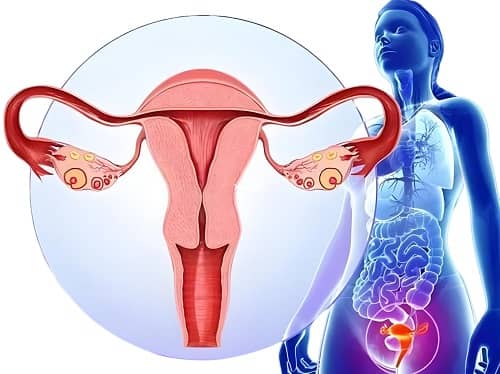Endometriosis is a common gynecological condition that can cause discomfort such as painful periods, pelvic pain, and even infertility. Fortunately, there are various effective treatment options available to alleviate symptoms and improve quality of life. Here are some common solutions for managing endometriosis:

Table of Contents
- 1. Medication for Symptom Relief
- 2. Surgical Treatment: Improving the Condition
- 3. Lifestyle Adjustments for Better Health
- 4. Maintaining a Positive Mindset
1. Medication for Symptom Relief
For mild cases of endometriosis, medication is often used to alleviate symptoms.
- Pain Relievers: Nonsteroidal anti-inflammatory drugs (NSAIDs), such as ibuprofen, can effectively relieve menstrual cramps and pelvic pain.
- Hormonal Treatments: Hormonal medications, such as birth control pills and progestins, help regulate hormone levels, slow the progression of endometriosis, and reduce symptoms.
- Intrauterine Device (IUD): An IUD that releases progestin can reduce pain and irregular bleeding associated with endometriosis.
2. Surgical Treatment: Improving the Condition
When medication is not effective or the condition is more severe, surgery may be necessary.
- Laparoscopic Surgery: This is the “gold standard” for treating endometriosis. Through minimally invasive laparoscopic surgery, doctors can directly observe and remove endometrial tissue outside the uterus. This surgery not only helps alleviate symptoms but also increases the chances of pregnancy for those with infertility.
- Hysterectomy: For severe cases, when other treatments fail, a hysterectomy may be considered, especially when the symptoms significantly affect the quality of life.
3. Lifestyle Adjustments for Better Health
Maintaining a healthy lifestyle is important for symptom relief.
- Balanced Diet: A diet rich in antioxidants, such as fresh fruits, vegetables, and nuts, can help reduce inflammation and improve overall health.
- Regular Exercise: Engaging in regular aerobic exercises, such as walking, swimming, or yoga, can improve overall health and reduce pain and stress.
- Adequate Sleep: Maintaining a regular sleep schedule and ensuring sufficient rest each night can strengthen the immune system and help reduce discomfort.
4. Maintaining a Positive Mindset
Endometriosis can have a significant impact on mental health, so maintaining a positive mindset is also important.
- Stress Management: Learning relaxation techniques such as meditation, deep breathing, and mindfulness can effectively reduce stress levels.
- Social Support: Staying connected with family, friends, and support groups can reduce feelings of isolation and anxiety, offering mutual support and shared experiences.
- Counseling: Seeking professional counseling may be helpful if symptoms are severely affecting mental health.
Summary
There are many treatment options for managing endometriosis. Patients should work with their doctors to develop an individualized treatment plan based on their symptoms and health status. Whether it’s through medication, surgery, or lifestyle adjustments, early diagnosis and timely treatment can significantly improve symptoms and help women return to a healthy life. If you suspect you have endometriosis, it’s important to consult a doctor as soon as possible for a thorough examination and appropriate treatment.